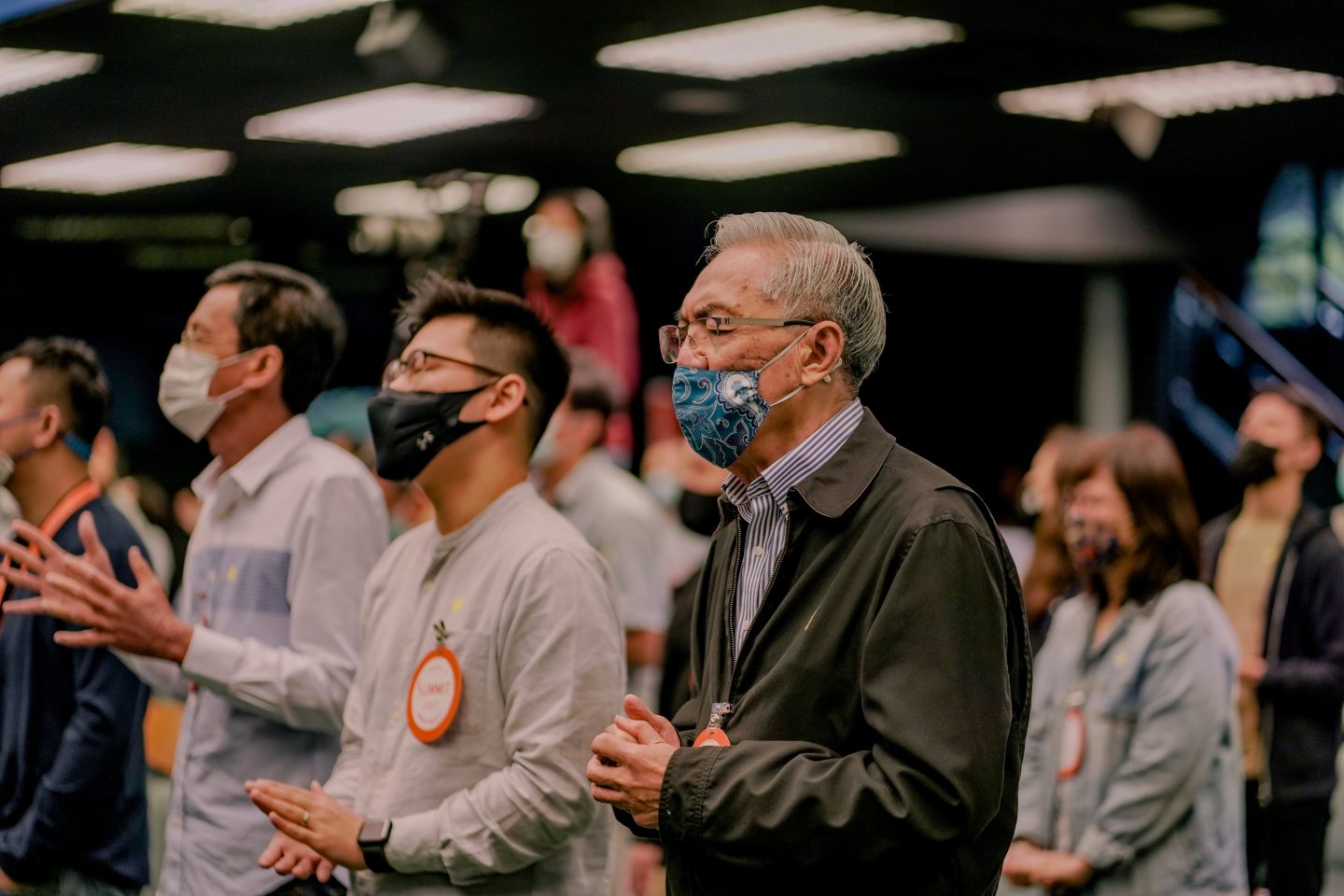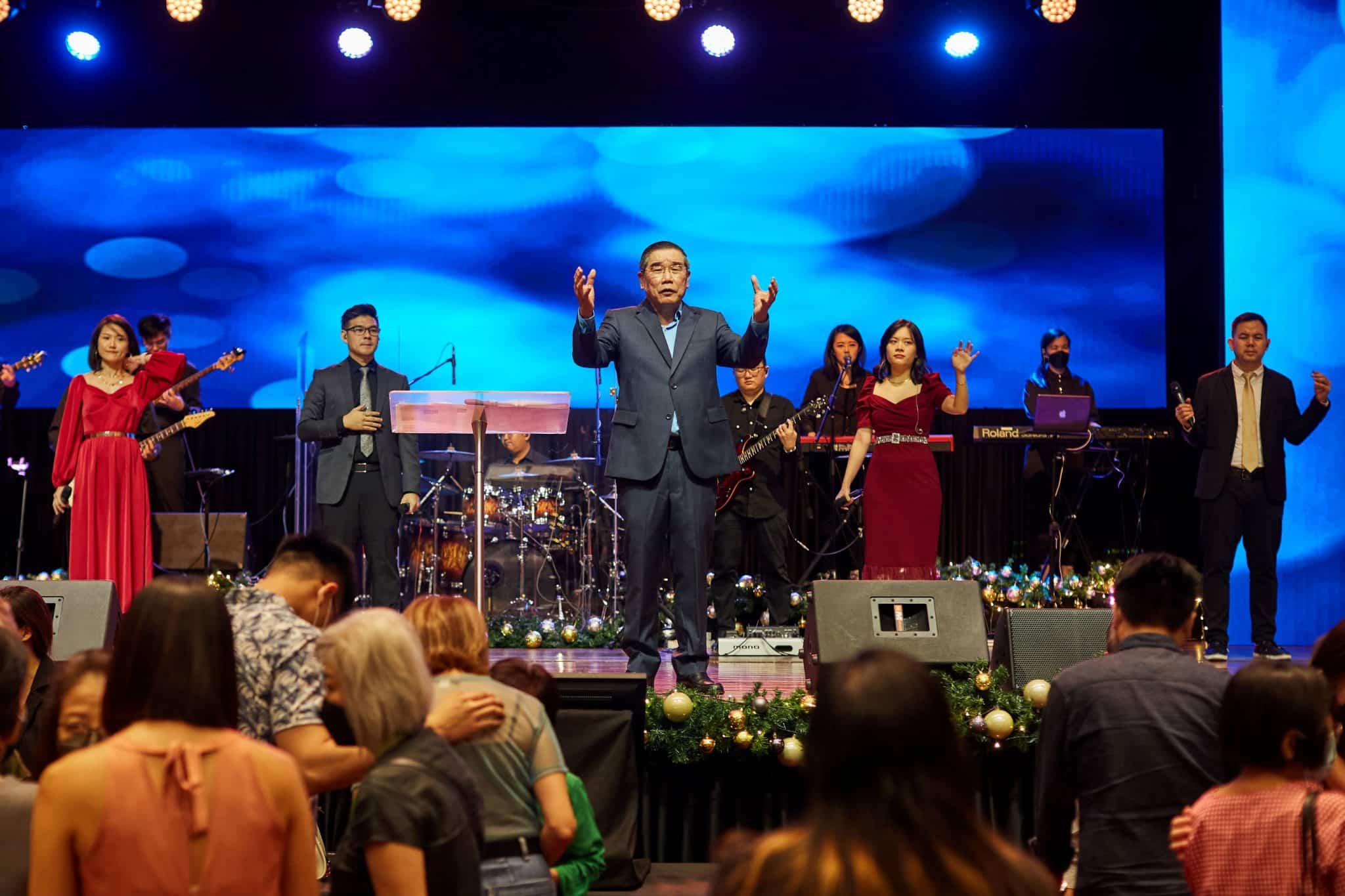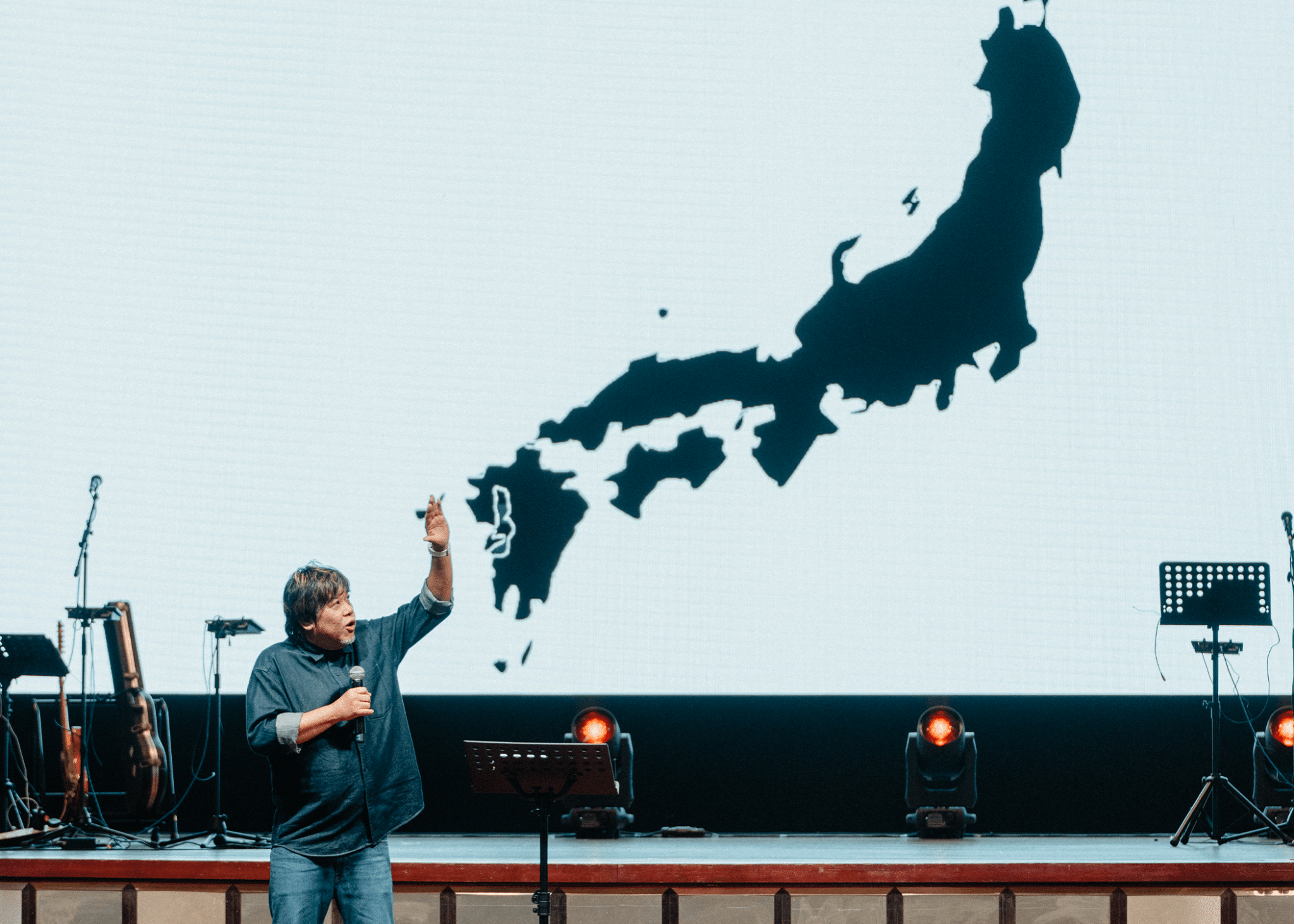“What dividends are you expecting from your investments?” asks Ps Lawrence Chua
Gabriel Choo // February 4, 2021, 6:00 pm

"Some investments in the earthly economy are actually investments in the economy of the Kingdom of God," says Ps Chua. But the values of investment in the economies are deceptively different. All photos by Ang Weiming.
“Isn’t God unfair?” questioned Pastor Lawrence Chua, who was speaking on the last day of the LoveSingapore Pastors’ Summit 2021 (Jan 14).
“Why couldn’t He help both profitable servants to turn a similar profit margin?”
The Senior Pastor of Living Sanctuary Brethren Church was referring to the Parable of the Talents (Matthew 25:14-30) in speaking about our investments in the economy of God’s Kingdom.
Christians, who have “dual citizenship” in the Kingdom of God and the kingdom of this world, are expected to invest in both.
“Some investments in the earthly economy are actually investments in the economy of the Kingdom of God,” he said.
“We can look at life as an investment in the Kingdom of God … and it has an eternal significance.”
He gave the example of how the Covid-19 pandemic has not only affected the earthly economy, but the Kingdom economy as well. Putting in time and effort to find new ways to meet online through live-streamed services or Zoom calls might seem like an investment in the earthly economy, but it is also a form of investment in the Kingdom of God.
However, most believers tend to invest more in the earthly economy and too little in the Kingdom economy.
The values of investment in the economies are also deceptively different, he pointed out.
Long term perspective
Looking at the imagery of trading and investment within the Kingdom, Ps Chua pointed to the parable where the master entrusted three of his servants with varying amounts of talents (significant sums of money) before he left on a journey.
The parable teaches in an insightful way on how we can live our life well by investing all we have in life on a daily basis, on a year by year basis, for a good return in future. It is living with a long time perspective and daily application.
This is applicable to both those in their sunset years, and those who still have a fair way to go in an average lifespan of 70 to 80 years.
“Different people can do the same things in life but with different investment perspectives,” he said. “And while the impact on their lives appears to be the same in the short term, but in the long term, the influence on the outlook is very different.”
“In Kingdom investment, our main purpose is to give God’s blessings to others.”
Also very different may be our perspective on this one life each of us has to live – and the way we live it.
“In this parable, Jesus is inviting us to look at living life with an investment perspective. We should invest it. Don’t waste it,” Ps Chua shared.
In commercial terms, people look for profit and influence in the marketplace where money is the main issue. But in Kingdom investment, we look for purpose and impact on human destiny in Jesus.
“Our main purpose is to give God’s blessings to others,” said Ps Chua.
“If we live life as faithful servants of God, we invest in his Kingdom’s business. It is not people, but God who will declare whether you truly lived well.
“Living well encompasses our actions, purposes, goals and motives, the use or misuse of our time opportunities, abilities, and resources. We can look at life as an investment in the Kingdom of God … and it has an eternal significance.”
Beyond profit
In the parable, “what was the master looking at in terms of investment outcome from the three servants?” asked Ps Chua.
A quantum of profit was not the main objective because otherwise the commendation would be different. The first two servants doubled their five and two talents respectively.
“The master had greater future plans for the servants. But the plans are dependant on the servants’ faithfulness.”
The master was looking principally for the quality of faithfulness.
“Of course he valued profit, but he valued faithfulness more. The master had greater future plans for the servants. But the plans are dependant on the servants’ faithfulness,” said Ps Chua.
“It is God’s desire to help you grow the character of faithfulness, which in turn will lead to greater responsibility.”
“Faithfulness is trustworthiness. Faithfulness is readiness to obey instruction, accept assignment and remain obedient in performance to the end.”
Faithful even in inequality
“As you invest faithfully in our Kingdom assignment, we see obvious inequality in results,” said Ps Chua of the two conscientious servants in the parable.
“Why couldn’t God help both profitable servants to turn a similar profit margin?”
He also gave current-day examples of how some resource-rich churches have the manpower, equipment and teams to easily broadcast online during the pandemic. Yet other churches even struggle to find enough car owners in their congregations to transport care packs to the community.

“One of the facets of faithfulness is staying power – staying on the job for the long haul,” Ps Lawrence Chua encouraged leaders at Pastors’ Summit 2021.
“Isn’t God unfair?” he asked.
“But faithfulness is the character quality that God values more than abilities and resources. God wants to see faithfulness in our lives. It is the quality He will reference when he evaluates us, not the size of our church,” shared Ps Chua.
The most important resource God has given us is time.
“God has given you one life … You have the choice to decide how to use your time, how to get around human limitations. So let us use well all the time we have on earth, deploy all the resources God has given you wisely … Don’t waste time.”
Ps Chua also urged: “Please remain faithful and trust in His faithfulness. Because one of the facets of faithfulness is staying power – staying on the job for the long haul.”
Confidence in ROI
Many have committed significant resources and made huge sacrifices for the Kingdom’s business, which include more time with the family and alternative career avenues.
“Faithfulness is the character quality that God values more than abilities and resources.”
We may be tempted to doubt our investment in the Kingdom business, especially in the challenging Covid-19 pandemic. But Ps Chua urged the audience to keep the faith.
Referencing Matthew 19:29-30, Ps Chua spoke on our ROI, return on investments: “We are going to get owners’ share and rights issues. I tell you, you are going to receive 100 times more plus consumer bonus.”
Urging the audience to take encouragement from the confidence of Apostle Paul that our investment is safe, Ps Chua said: “Paul committed everything, his whole life to God, and did not see much dividends in the world economy. In fact, he suffered horrendously.”
But Paul did not doubt God to keep all that he has committed to Him until the day of His return. (2 Timothy 1:8-12)
“And once you’re committed to this kind of investment, God, as the chief investment officer, will keep that which we have committed to Him.”
MORE STORIES FROM PASTORS’ SUMMIT 2021:
“A spiritual leader must leave no brokenness unhealed”: Pastor Daniel Foo
Lament! President of NCCS exhorts leaders at Pastors Summit 2021
We are an independent, non-profit organisation that relies on the generosity of our readers, such as yourself, to continue serving the kingdom. Every dollar donated goes directly back into our editorial coverage.
Would you consider partnering with us in our kingdom work by supporting us financially, either as a one-off donation, or a recurring pledge?
Support Salt&Light



